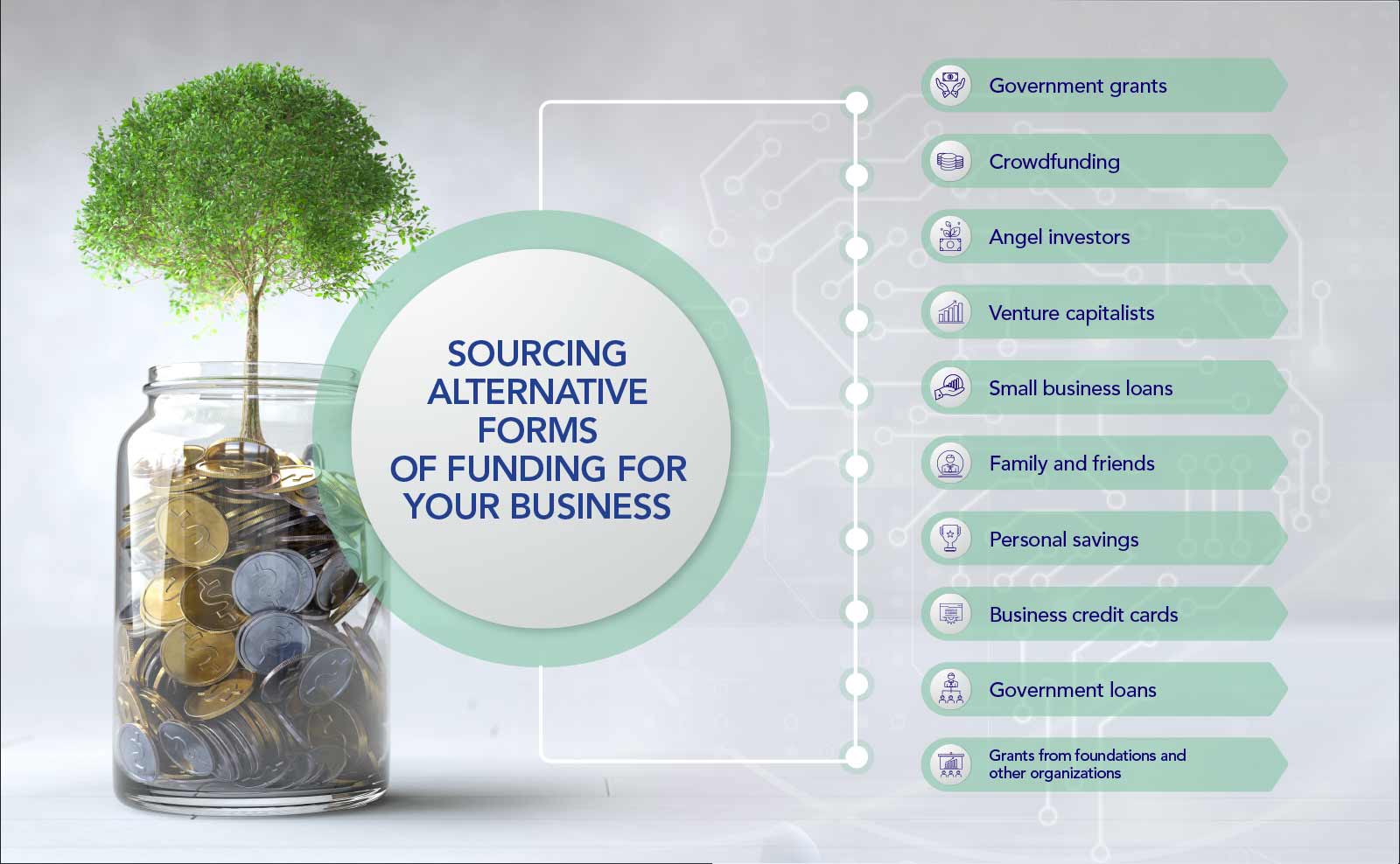There are several ways to source alternative forms of funding for your business. This article will discuss several options that you can consider. So let’s dive right into the meaty part, shall we?
1. Government grants
The government offers a variety of grants for businesses, which can be used for a wide range of purposes, including research and development, export promotion, and employee training. To learn more about government grants, visit the website of your country’s Small Business Administration or equivalent agency.
Grants are also available from state and local governments and non-profit organizations that provide funding for small businesses in specific areas of interest. For example, some states offer grant programs to help finance research in high-tech fields such as biotechnology and nanotechnology. Other states will provide grants to promote tourism by offering tax rebates or other incentives to encourage visitors to come to their state.
2. Crowdfunding
Crowdfunding is a way of raising funds from a large number of people, typically via the internet. There are several crowdfunding platforms available, such as Kickstarter and Indiegogo.
The idea behind crowdfunding is to set up your campaign page on one of these sites and ask people to donate money to help you fund a project. You might need funding for a new business venture or to support something you feel strongly about (such as wildlife protection).
3. Angel investors
Angel investors are individuals who invest their own money in startups and small businesses. They typically provide seed funding, which is the early stage of financing.
Angel investors are typically wealthy individuals who have made much money by trading stocks or other investments. They may be successful entrepreneurs themselves or may have worked for large companies. Angel investors invest in startups and small businesses because they want to see their investments grow and make money.
4. Venture capitalists
Venture capitalists are firms that invest in startups and small businesses. They typically provide more significant sums of money than angel investors and usually invest at later stages of a company’s development.
The term “venture capital” has come to refer to money invested by venture capitalists. Still, it was initially coined to describe the process that brought about the first successful tech start-ups. Venture capitalists work closely with CEOs and developers to help them develop their ideas into viable businesses that can be sold for a profit.
Venture capital firms invest in startups and small businesses, usually providing more significant sums of money than angel investors and usually investing at later stages of a company’s development.
5. Small business loans
Small business loans can be obtained from several sources, including banks, credit unions, and online lenders. However, the terms and conditions of small business loans vary widely, so it’s essential to compare offers from multiple lenders before choosing one.
Most lenders require that you have a small business to qualify for a loan. A small business is defined as one with annual revenues of up to $50 million. Some lenders may also consider an organization with fewer than 100 employees if it has enough assets and income to repay its loans over time.
The interest rate on a small business loan can range from 6 percent to 12 percent per year, depending on the lender and your credit history. You’ll want to compare these rates with those offered by other lenders because each lender’s terms may vary slightly from another lender’s terms.
6. Family and friends
Family and friends can be a great source of funding for your business. If you decide to go this route, be sure to draw up a contract that outlines the terms of the loan, such as the repayment schedule and interest rate.
You might also consider partnering with family members or friends who can help with marketing and sales. For example, if you’re looking for funding for your business from family and friends, ask them if they would like to help in any way. You could offer them stock in exchange for assistance or ask them to pitch in with marketing or sales efforts.
7. Personal savings
If you have some personal savings, you can use them to fund your business. It is often considered the riskiest option, as you could lose your savings if your business fails. However, if you’re confident in your business idea and have a solid plan, using your money can give you more control over your business.
You can also use personal savings as an emergency fund for unexpected costs in your business. For example, if you have a sudden increase in materials costs or other expenses that are out of your control, such as a sick employee who needs to be cared for at home instead of working from home.
8. Business credit cards
Business credit cards can be a good source of funding for your business, especially if you need to make small purchases or cover unexpected expenses. However, it’s essential to be aware of the potential dangers of using credit cards, such as high-interest rates and late fees.
Businesses often use them as a way to save money on transaction fees charged by banks. A business credit card also allows you to use rewards programs that boost your profits. These programs vary from one lender to another, so you must understand how they work before applying.
9. Government loans
Government loans are another option to consider when sourcing funding for your business. These loans typically have lower interest rates than other types and can be used for various purposes.
Government loans can be used for many purposes, including helping out with initial startup costs, expansions, equipment purchases, and other projects. They are also good for providing working capital that can help you grow your business.
10. Grants from foundations and other organizations
Grants are an excellent way for businesses to get funding. They can be used for various purposes, including marketing and advertising, employee training, and more.
There are many foundations and other organizations that offer grants to businesses. Search online or contact the organization directly to determine if you’re eligible for grants.
Many options are available no matter what type of funding you’re looking for. The best way to find the right one for your business is to research your options and speak with a professional about what would work best for your needs.









